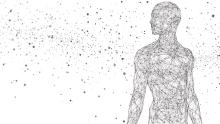A new way to treat radiation sickness

Currently there are no therapy options available for those suffering acute radiation sickness. But hope is on the horizon. A combination of carbon and pectin developed by the EU-funded NanoMed project can absorb damaging molecules generated in the body after exposure to radiation. It’s the first step towards a simple pill that can be given to those exposed to high levels of radiation.









